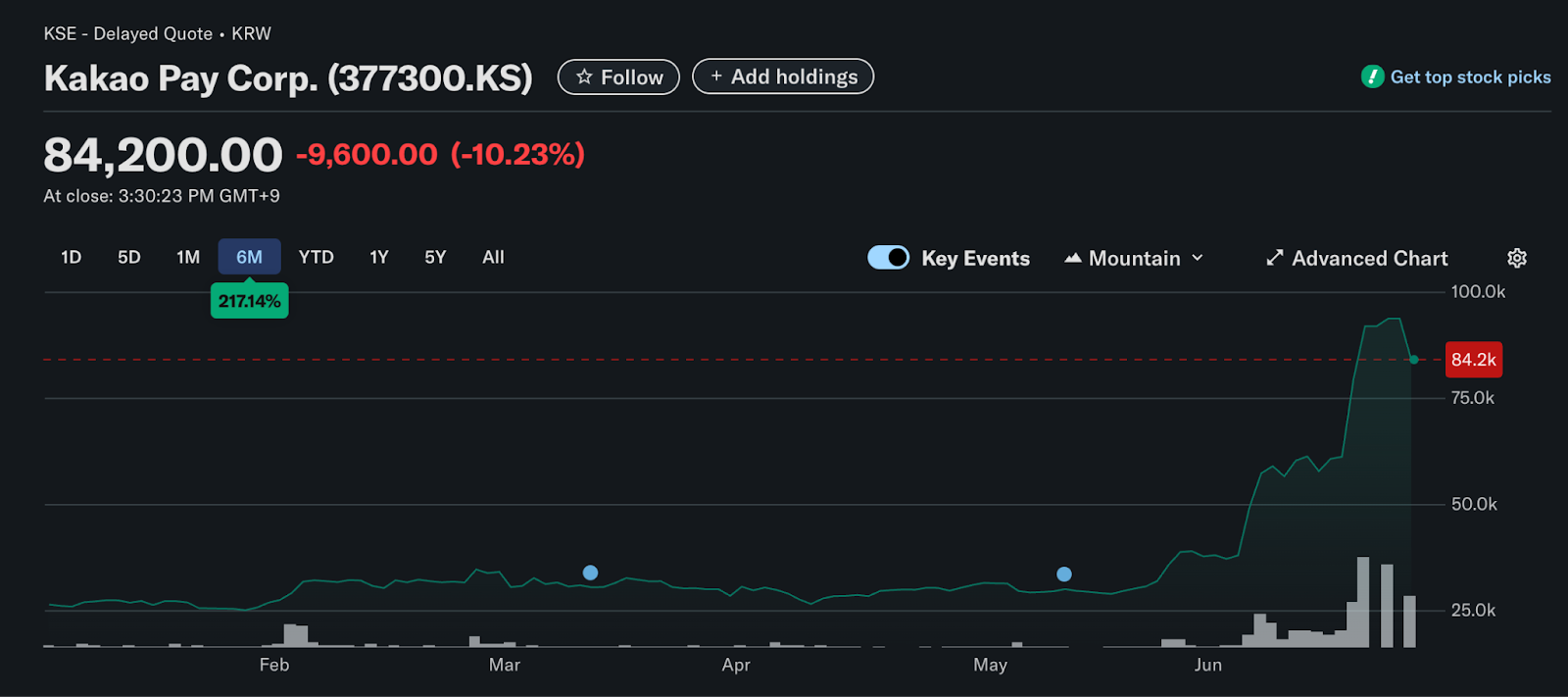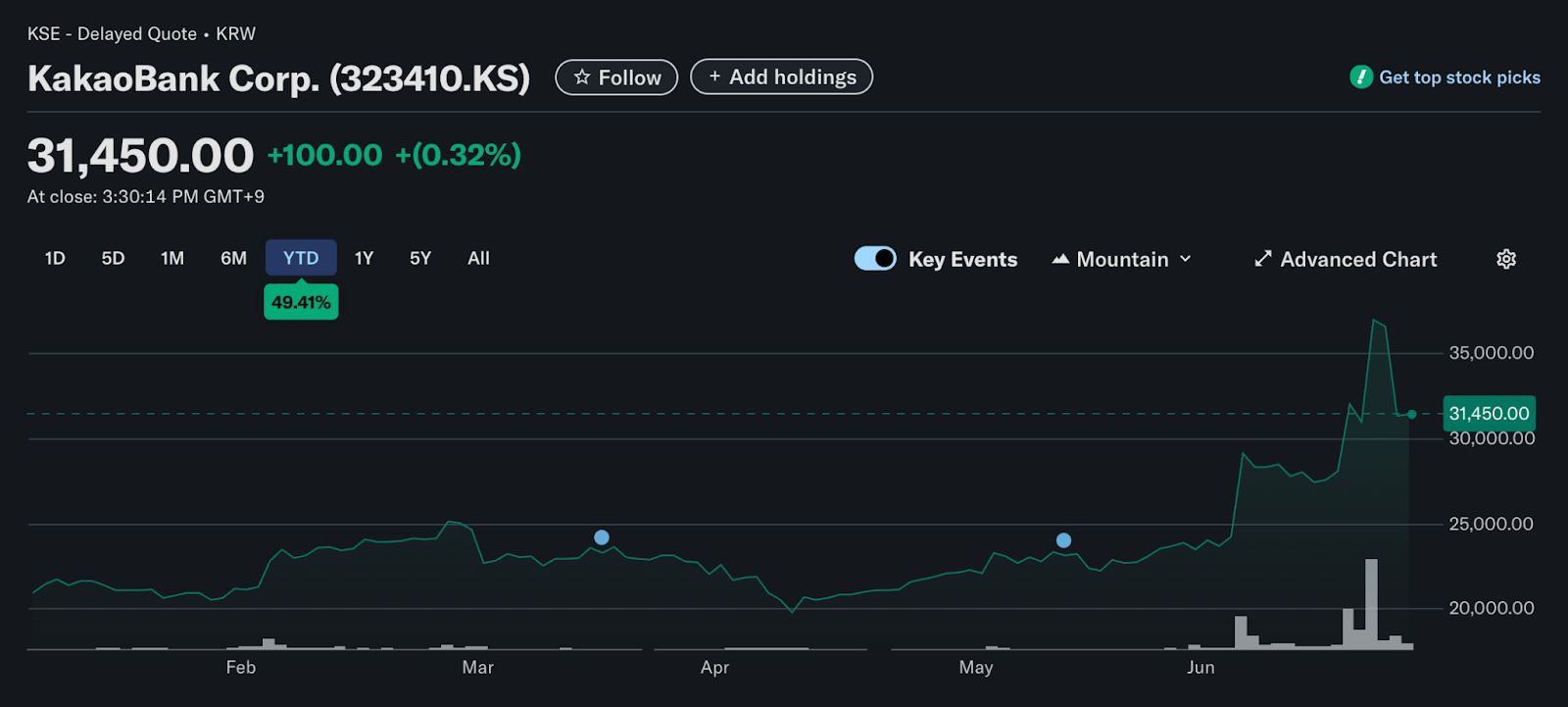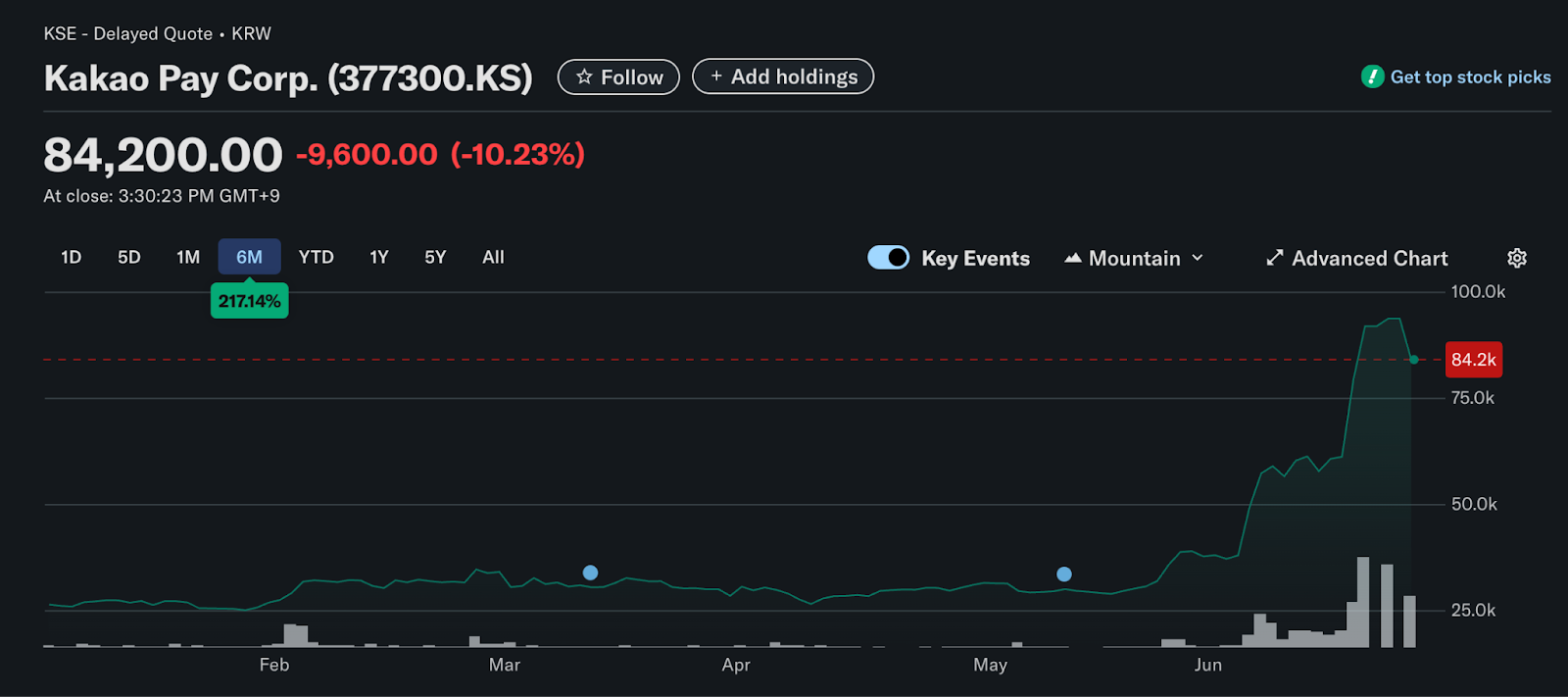South Korean fintech giant Kakao Pie crashed 17% on June 27 as trading resumed after a second suspension of shares in a week due to rising skepticism about the winning stubcoin by the Korean exchange.
According to Bloomberg, the exchange designated cocoa pie as an “investment risk” due to extreme volatility, but the underlying cause is much deeper than a simple market mechanism.
Over the past month, stocks have tripled as the market has bets heavily on South Korea’s evolving digital asset regulations.

The dramatic sale was attributed to rising tensions between market enthusiasm for stable opportunities and increasing regulatory concerns about risks for financial stability.
Stablecoin Fever holds the Korean market
The excitement began earlier this month when South Korean Democrats proposed legislation that would allow local businesses to issue robust, ridiculous things they won.
Kakaopay recently submitted 18 trademark applications related to digital currency services. The filing generated widespread speculation that the company is positioning itself to become a major player in the winning stubcoin market expected in Korea.
The company is participating in the growth list of Korean financial institutions to secure Stablecoin-related intellectual property, including KB Kookmin Bank, Hana Bank and Internet-only Kakao Bank.
This broader crypto-linked stock rally infused multiple companies with seating, and Cacao Bank touched on the three-year high before regulatory warnings caused a sharp reversal.

Even game developer Nexus joined the Rush, registering a Won-based Stablecoin called “Krwx” on the Binance blockchain, while filing corresponding trademark applications.
But Thursday’s sharp revisions have halted the trend, and businesses are now taking a cautious step.
Regulatory reality checks reduce optimism
Bank of Korea Governor Lee Jang Yong has undermined investor enthusiasm by warning about the risks associated with the winning stubcoin.
The central bank governor has complicated the forex business by warning that domestic stubcoins could paradoxically increase demand for dollar-controlled alternatives.
International settlement banks have separately questioned whether Stubcoin could call their future role “unclear” despite the rapid growth of the sector.
South Korean regulators are not isolated from these challenges. This is the global tension that policymakers around the world are wrestling with, as they are actively investigating ways to create stable, sustainable surveillance frameworks.
Hong Kong recently passed a comprehensive stubcoin law and the US Senate approved the Genius Act, but implementation challenges and cross-border coordination remain important hurdles.
However, adoption of the scheme continues to accelerate despite regulatory uncertainties, and ChainLink has recently partnered with MasterCard to bring Stablecoin infrastructure to more than 3 billion users worldwide.
Shopify recently has integrated with Coinbase Payments, allowing millions of merchants to accept Stablecoins directly. Meanwhile, tech giants like Meta are reportedly investigating stubcoin integration on their platforms.
Kakaopay’s shares plummeted 17% as the Korean exchange suspended trading over Stablecoin exposure.


 South Korean Democrats are launching a Digital Assets Committee and seeking to put crypto regulations under the control of the next president.
South Korean Democrats are launching a Digital Assets Committee and seeking to put crypto regulations under the control of the next president. South Korea’s central bank, Bank of Korea, is still slippery about its proposal to launch Won Stablecoin despite recent meetings with the USD Coin (USDC) issuer circle.
South Korea’s central bank, Bank of Korea, is still slippery about its proposal to launch Won Stablecoin despite recent meetings with the USD Coin (USDC) issuer circle.

